Shirley Williams: One of the UK’s best-loved politicians
Readily known by her first name, Shirley Williams, once tipped to become the first female prime minister, enhanced the quality of public life
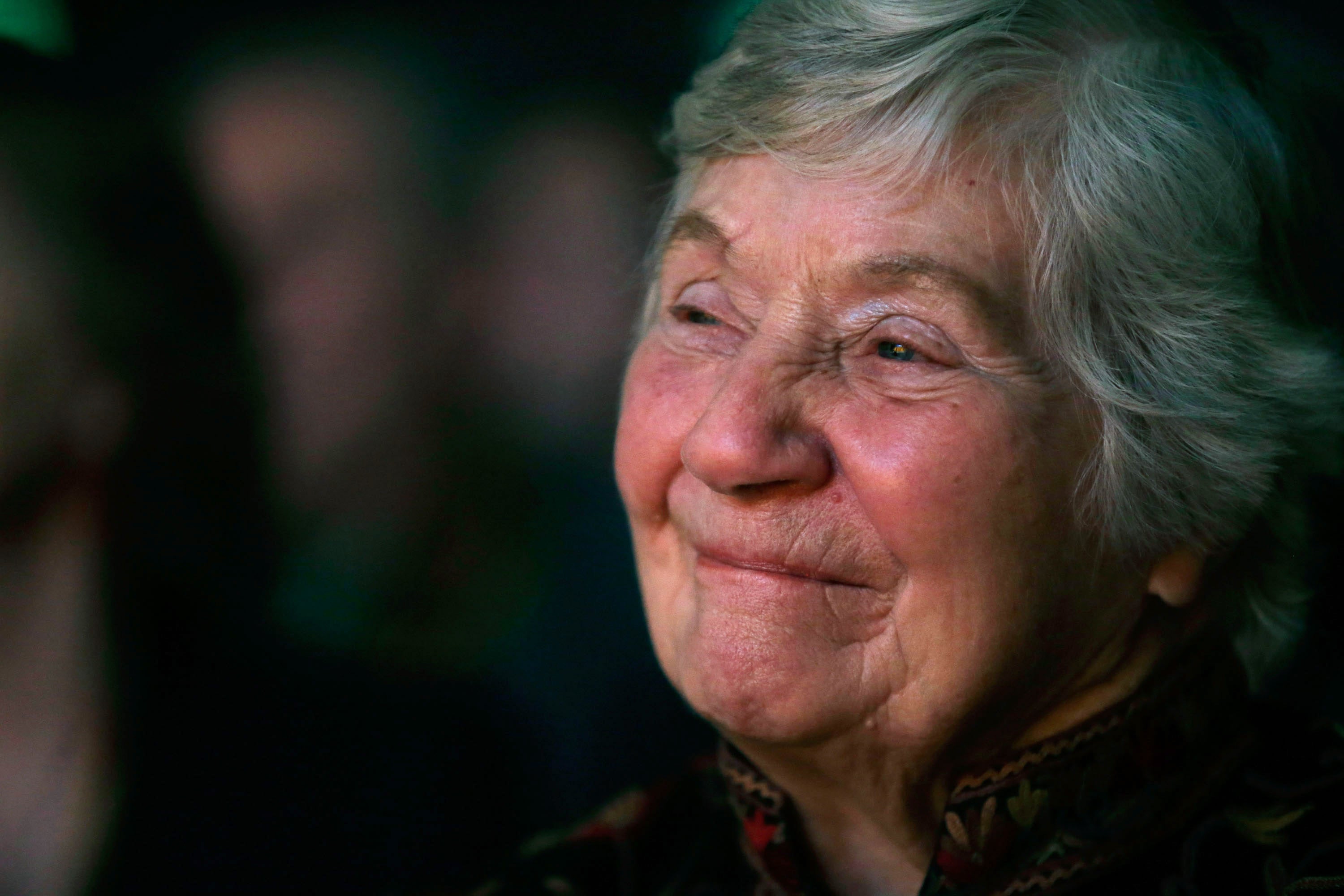
Your support helps us to tell the story
From reproductive rights to climate change to Big Tech, The Independent is on the ground when the story is developing. Whether it's investigating the financials of Elon Musk's pro-Trump PAC or producing our latest documentary, 'The A Word', which shines a light on the American women fighting for reproductive rights, we know how important it is to parse out the facts from the messaging.
At such a critical moment in US history, we need reporters on the ground. Your donation allows us to keep sending journalists to speak to both sides of the story.
The Independent is trusted by Americans across the entire political spectrum. And unlike many other quality news outlets, we choose not to lock Americans out of our reporting and analysis with paywalls. We believe quality journalism should be available to everyone, paid for by those who can afford it.
Your support makes all the difference.Shirley Williams was one of the UK’s best-loved politicians. As a compelling personality and a principled voice of the centre left, her appeal transcended political parties. Like Boris Johnson, she was readily known by her first name. She had the handicap of being tipped at an early age to be Britain’s first female prime minister, but never came near achieving it, and instead had to settle for enhancing the quality of public life.
Shirley Catlin was born in 1930 to intellectual parents who supported the Labour Party and progressive causes. Her father, George Catlin, was a professor of political science at Cornell University in the US. He was overshadowed by his author wife Vera Brittain, whose memoir Testament of Youth (1933) became a best seller. The book resonated with many as it described a young woman’s loss of loved ones, including a fiance and a brother, in the First World War.
Williams’s childhood home was comfortable economically, but less so emotionally. George was often absent due to his work, while Vera was devoted to her peace and feminist campaigns and above all to her writing, with motherhood taking a distant second place. The housekeeper, instead, was a source of affection and attention for the young Shirley, who later recalled that “only death, war or a serious accident” could justify interrupting Vera in her study. When Vera’s book was made into a film, Williams remarked that as an adult she had been inspired by her mother, but had suffered from her remoteness as a child.
In 1940, the ten-year-old Shirley and her brother John, aged 13, were evacuated to the United States for three years. She was shortlisted for the role of the young heroine in the film National Velvet, the part eventually being awarded to Elizabeth Taylor. By the time Shirley returned to England and entered St Paul’s Girls’ School, she had attended eight schools. She won a scholarship to read PPE at Somerville College, Oxford – the same college at which her mother had studied.
She was a “name” at Oxford, where she led a hectic social life. She acted (and toured) with the dramatic society, wrote features for The Isis, and was actively involved in political debates. As an attractive and gregarious student she had many male suitors. There were serious relationships – with Peter Parker, later chair of the British Railways Board, and Roger Bannister, who was soon to be the first man to break the four-minute mile – and allegedly twelve proposals. In the end, she fell for a handsome young philosophy don, Bernard Williams, and they married in 1955.
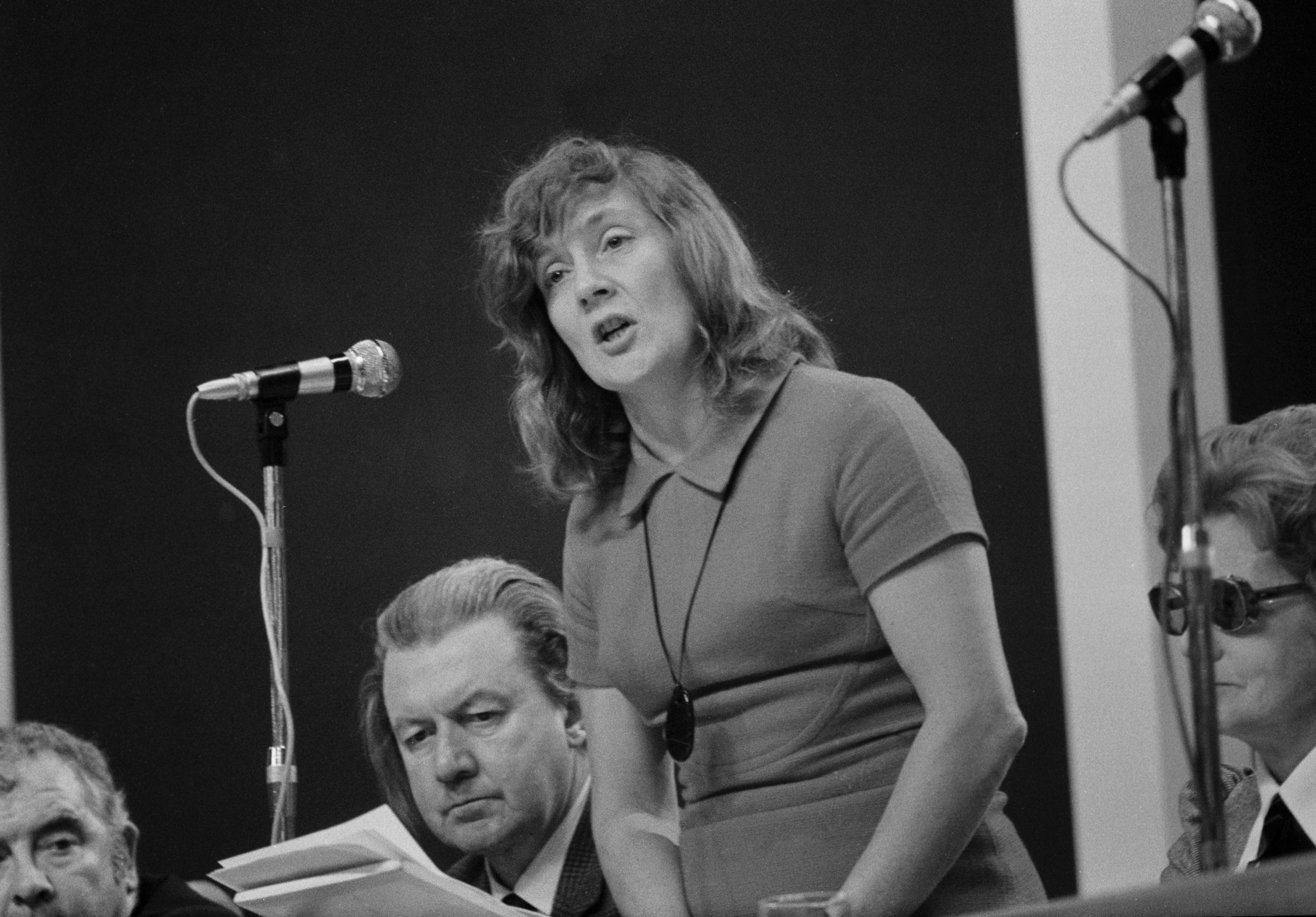
By the time she had set her sights on becoming a Labour MP, she had a glittering CV, more exciting by far than the narrow hinterland of many MPs today. As the first female chair of the Oxford University Labour Club, she had already played host to many of the party’s leading figures. After graduating from Oxford, she won a Fulbright scholarship to study at Columbia University. On her return, she joined the Daily Mirror as a journalist, followed by the Financial Times. She was made general secretary of the Fabian Society in 1960, the year she turned 30.
Williams fought the Harwich by-election in 1954, aged 23; the general election in 1955; and another by-election in Southampton in 1959. She was elected as MP for Hitchin as one of Labour’s new intake in 1964, and one of only 28 female MPs (a record number at the time, but still only accounting for 5 per cent). She impressed in a series of junior ministerial posts. She had such an appealing character, and was such a good communicator, that the party leaders made sure she was often photographed, and she appeared on a variety of TV and radio programmes. When Harold Wilson said that he looked forward to the day when Labour would provide the first female British prime minister, many assumed he was referring to Williams, much to the chagrin of Barbara Castle, who was Williams’s senior.
As a junior minister, Williams won the admiration and affection of fellow ministers and of her colleagues in the civil service. But early in her career she already had a deserved reputation for unpunctuality (unlike Margaret Thatcher), for not being terribly organised (often because of taking on too many commitments), for becoming bogged down on policy detail (though she was good on communicating the bigger picture), and for being indecisive (a downside of her openmindedness). She knew of the anagram for her name: “I whirl aimlessly”.
Her marriage to Bernard fell into difficulties in ways that went beyond the tension between his convinced atheism and her devout Catholicism. Both were busy and flying high in their respective careers, and they spent less time together when he left University College London for Cambridge in 1967 to take up a post as Knightbridge professor of philosophy. Her offer to give up politics to save the marriage was spurned; Bernard had fallen for the wife of a fellow academic. The desertion was very public, and for Williams, humiliating. They separated in 1971, and divorced in 1974. Typically, she blamed herself. She was now a single mother, with a ten-year-old daughter and a dying mother to care for.
She soon fell in love with a professor of politics, Anthony King, and they planned to marry once she received an annulment of her previous marriage from the Vatican. It took a long time to come through, and by the time it did, they had gone their separate ways, though they remained good friends.
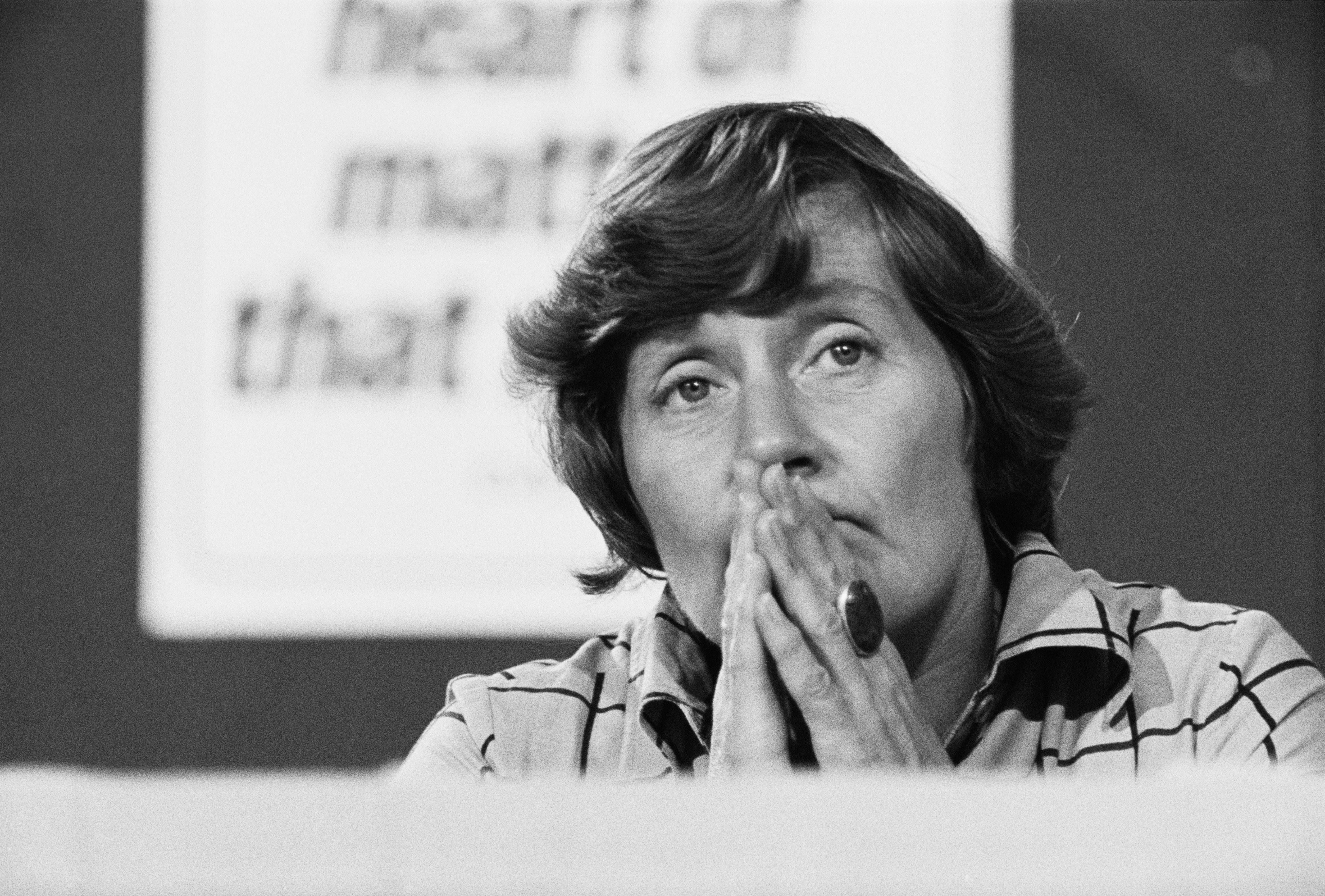
Political life was no easier. Labour lost the 1970 general election and the party moved to the left. As a strong supporter of British entry to the EEC, Williams was unhappy with the party’s decision to oppose entry on the terms negotiated by Edward’s Heath’s government. She was one of 69 Labour MPs who defied the whip to vote for entry. At the time she was shadow home secretary, a significant promotion. Wilson managed to keep the PLP relatively united behind the offer of holding a referendum on membership if Labour formed a government. Williams upset party chiefs during the February 1974 general election campaign when, seated next to Wilson at a press conference, she answered a question by saying she would leave politics if the referendum vote turned out to be for withdrawal.
When Labour returned to office in 1974, Wilson appointed her to the new post of secretary of state for prices and consumer protection. With inflation in double digits, her task was to bear down on prices to keep the unions onside in wage negotiations. Hers was an exhausting and unglamorous task, dealing with the details of claims and counter-claims of public and private industries and services.
In 1976, the new prime minister, James Callaghan, soon appointed her education secretary – the only woman in his cabinet. There were many former teachers among Labour MPs, and as a result the party was generally sympathetic towards the teaching unions. But at a time of economic constraint and incomes policy, no education secretary could be popular. Williams continued the programme introducing comprehensive secondary education, making herself a target for sections of the middle class and anti-Labour public. Ironically, Thatcher had closed more grammar schools as education secretary under Heath. It did not help Williams that her daughter attended the selective Godolphin and Latymer, which became independent rather than a comprehensive.
Callaghan, prompted by his policy unit head, Bernard Donoughue, took an interest in education. He called for greater emphasis on literacy and numeracy, and expressed concern about informal methods of teaching and the neglect of science among students in higher education. Any such agenda was sure to anger the teaching unions, as well as some departmental officials, and so it did. Callaghan was disappointed that Williams had not made more progress by the time the government was voted out in 1979.
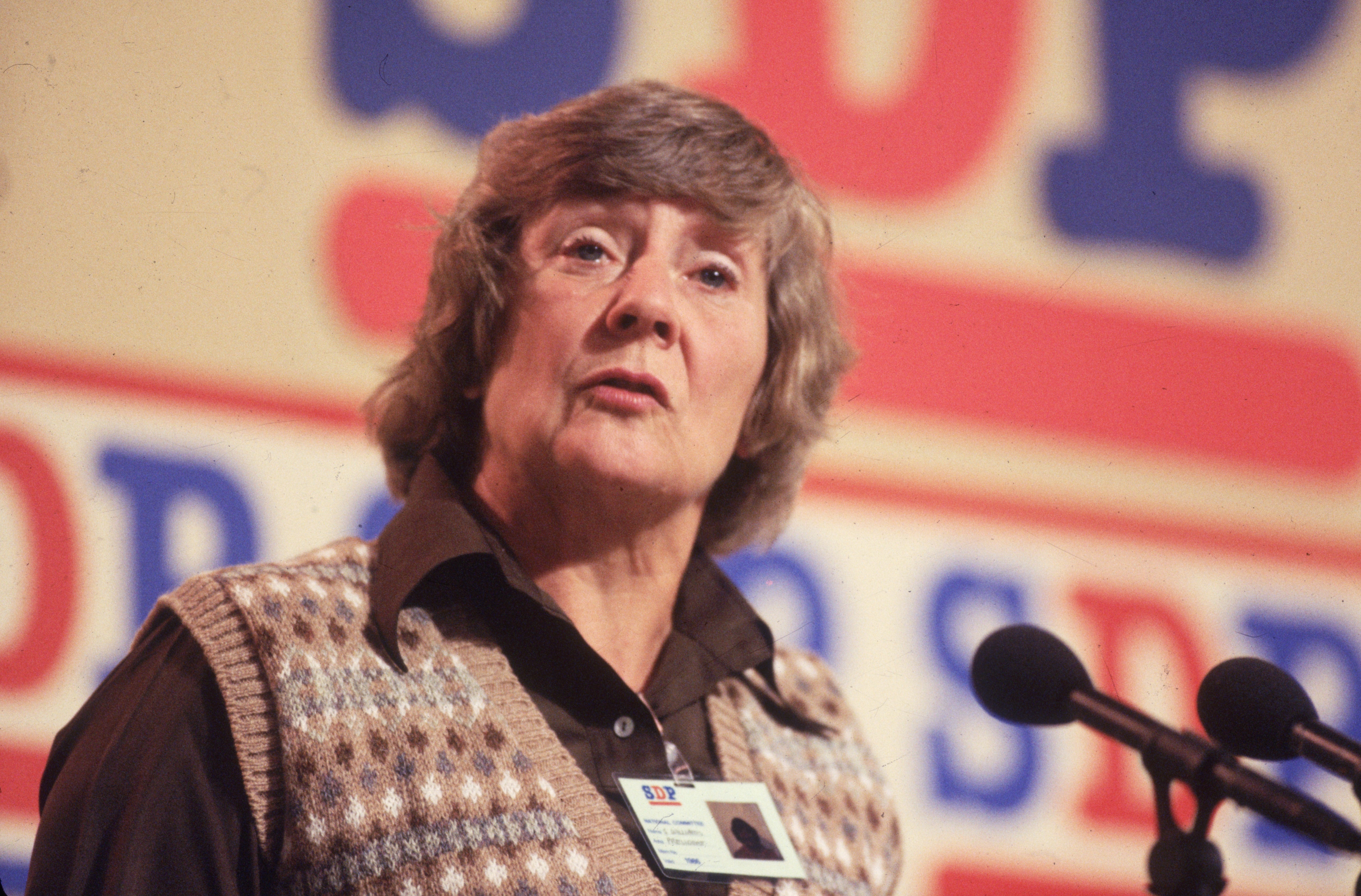
Williams did not realise that at the age of 49 she would never return to ministerial office. Nor could she have anticipated that the loss of her seat in the 1979 election meant that her career as a Labour MP was over. For all her popularity in the country, and high profile in the party, she never held any of the top posts in government. It remains a matter of conjecture how she would have performed if she had been tested in a senior post, particularly given the leftward drift in the Labour Party in the 1970s and 80s.
Following Labour’s defeat in the 1979 general election and the start of Thatcher’s ascendancy, Williams’s wing of the party lost ground as Tony Benn and the left laid siege to the party’s rules and existing policies. The party adopted a raft of left-wing policies, including unilateral nuclear disarmament and withdrawal from the EEC. It gave a greater role to the unions, and introduced mandatory reselection of sitting MPs. Williams eventually gave up on Labour, and in 1981 was one of the so-called “Gang of Four” (with Roy Jenkins, David Owen and Bill Rodgers), all experienced former Labour cabinet ministers, who formed the breakaway Social Democratic Party (SDP). Williams was the last of the four to break with Labour: being more rooted in the party, the decision to leave it troubled her. Hers was the one departure that caused grief among party supporters. The four were joined by 28 disillusioned Labour MPs and one Conservative. In 1982 she became the first elected president of the new party.
Having passed up the opportunity in 1981 to stand as the SDP candidate in the Warrington by-election (where the less suitable Roy Jenkins stood and nearly won), and aware of her colleagues’ doubts about her resolve following her refusal, she then stood in a by-election for the less winnable Crosby, the eighth-safest Conservative seat in the country. She achieved a stunning victory, overturning a Conservative majority of 20,000, and became the party’s first elected MP. The opinion polls and further by-election victories showed remarkable levels of support for the new party. But there was no breakthrough. The 1983 general election was an SDP Liberal Alliance success in terms of votes (25.4%) but was disastrous in terms of seats (3.5%).
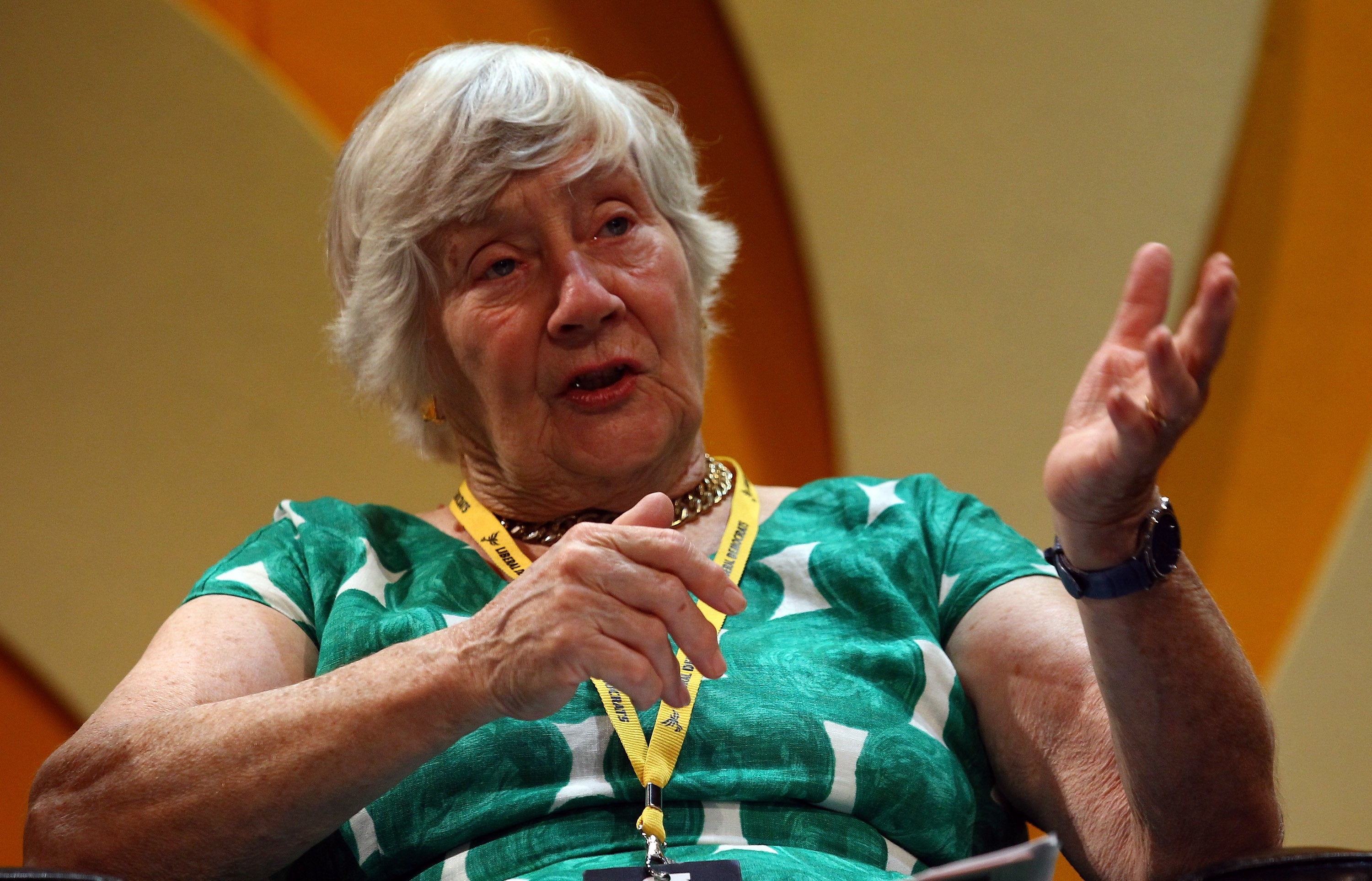
She lost Crosby in 1983 (it had become unwinnable because of boundary changes). Electorally, the country was Thatcher’s. Following the 1987 general election, in which she stood unsuccessfully in Cambridge, Williams backed the merger of the SDP with the Liberals to form the Liberal Democrats.
Thereafter, Williams’s life took a happier turn, with a post at the Kennedy School of Government at Harvard. The dean of the school until recently had been Richard Neustadt, the foremost student of the American presidency. Williams had been a close friend of Neustadt and his wife, and in 1987, after he was widowed, she married him. At this time Williams was also bringing up the daughter and son of her brother, who had died. She combined academic life with activities on visits to the UK and Europe, and in 1993 became a member of the House of Lords. She retired from Harvard in 2001 and became Lib Dem leader in the Lords.
In 2007 the new prime minister, Gordon Brown, invited some distinguished figures outside the Labour Party to play a role in government. Williams accepted a post as his adviser on nuclear proliferation. As with most such appointments it did not amount to much. She was an active member of the Lords and played a key part in brokering changes to Andrew Lansley’s Health and Social Care Bill in 2012, helping to win Lib Dem support for the final package.
All this time she continued her membership of numerous boards, think tanks and committees in the US, Europe and the UK. She was a regular participant at international conferences and symposiums addressing progressive causes. She was regarded as the queen of the elite annual Anglo-German Konigswinter conferences, and by 2016 was the only person still alive who had attended the first post-war conference of the SPD (the German social-democratic party). In her eighties she was still her party’s most compelling speaker, regularly appearing on broadcast media.
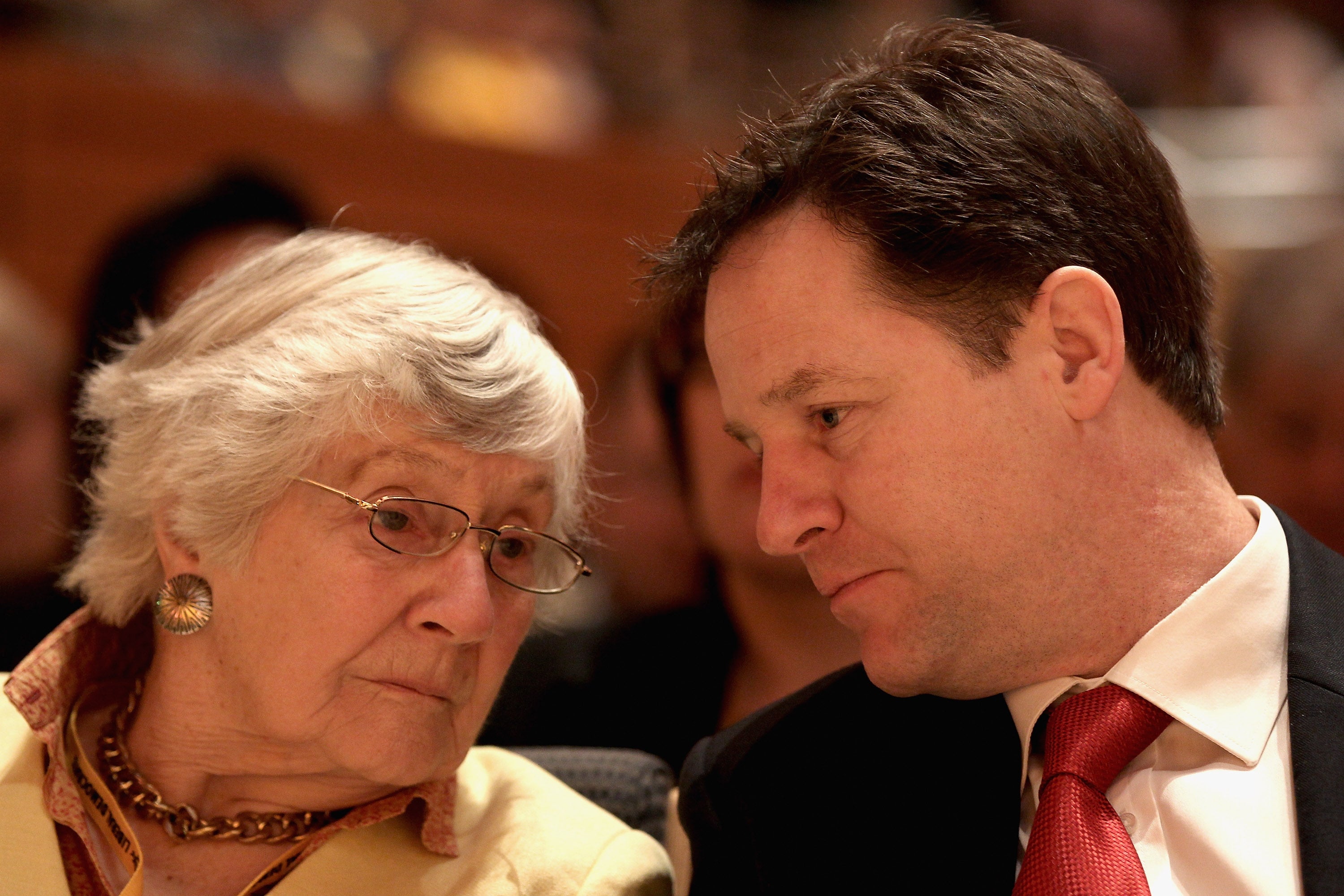
Williams was in the news in 2015 with the successful film adaptation of her mother’s Testament memoir. Like Vera, she was associated with causes: support for the EU, overseas aid, human rights, comprehensive education, the BBC, Open University and – as a devout Catholic – opposition to abortion, divorce, and same-sex marriage. She defended these positions with passion and eloquence in the media. Her retirement speech in the Lords in January 2016 revisited these themes. Williams was appointed to the Order of the Companions of Honour for “services to political and public life” in the new year honours in 2017. To the end she remained a good listener, with her head cocked to one side, fixing a friendly gaze on her interlocutor and giving the impression that they had her full attention and sympathy.
The question often asked is why she did not rise higher. Labour’s deputy leadership was probably within her grasp in 1972 had she agreed to stand. She would surely have won Warrington for the SDP in the 1981 by-election, had she stood, and would have been poised to become leader of the new party. She looked back on her rejection of that chance as “the biggest single mistake of my career”. She also refused to challenge Jenkins for the leadership of the SDP in 1982.
She would probably answer that achieving high office is not the main point of political life; for her, public service and being a voice for her principles counted for more. She readily accepted that she lacked the ruthlessness and apparent self-confidence of a Margaret Thatcher, Barbara Castle or Hillary Clinton, telling an interviewer in 2016: “I didn’t feel I was of the right timber.” After the breakdown of her first marriage, she admitted that she lacked a partner or spouse who believed in and supported her. And it probably did not help that she liked to be liked.
That self-awareness, part of her widespread public appeal, shines through in her autobiography, Climbing the Bookshelves (2009). The title was prompted by the memory of her father, whose bookshelves rose so high that a ladder was needed to reach the top.
She lived in Little Haddon, alone but near her daughter and grandchildren.
Shirley Williams, politician, born 27 July 1930, died 12 April 2021
Join our commenting forum
Join thought-provoking conversations, follow other Independent readers and see their replies
Comments